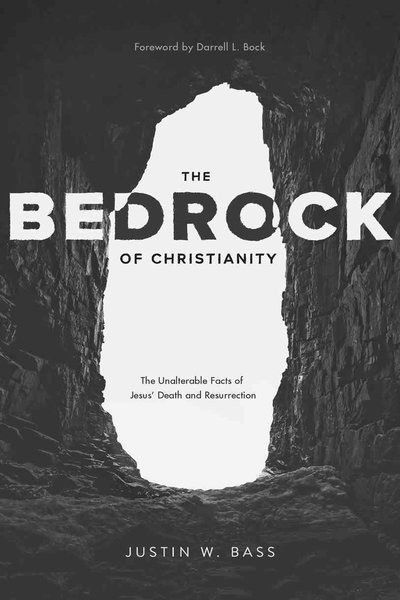
An Interview with Christianity Today Editor Andrea Palpant Dilley
by Chris Reese
I recently had the opportunity to interview Andrea Palpant Dilley, who is Senior Associate Editor at Christianity Today, and the author of Faith and Other Flat Tires: Searching for God on the Rough Road of Doubt. We talked about her work for Christianity Today, being a Christian journalist, and the role apologetics played in her return to faith after a period of doubt.
Worldview Bulletin: Andrea, thanks very much for taking time to talk with us. What is your role at Christianity Today, and what does a typical day look like for you?
Andrea Palpant Dilley: Come August, I’ll be moving into the role of online managing editor, but for now, my title is senior associate editor. My job is to assign, edit, and publish content for online and print publication.
On an average day, I’m in and out of meetings, brainstorming ideas with my colleagues, culling through submissions in my inbox, and editing the piece that’s next in my queue. The bulk of my time is spent editing. I have to dig deep into each essay, help the writer craft a strong, cogent argument framed around a narrow thesis, and then think about what CT readers need from that particular piece. It’s brain-intensive work, but I love it.
WB: How did you become interested in writing and journalism?
Dilley: Well, a love of writing starts with a love of reading, and I grew up in a family of bibliophiles. My parents were missionaries to Kenya, and almost every evening during our time there, my mom or dad would do the dishes and the other one would sit in a chair in the corner of the kitchen and read aloud to my brothers and me. I still remember lying on my dad’s lap while he read Lord of the Rings.
As far as my interest in journalism is concerned, I worked as the features editor for my high school newspaper, studied English literature and writing in college, worked as a freelance journalist for a few years before and after graduation, and then spent almost a decade as a documentary producer/director before returning back to freelance journalism. So I’ve been practicing some form of the craft for about two and a half decades.
With my documentary work, I went out into the field with an expensive camera crew instead of an audio recorder. But the core of the work was very much the same. The goal was to find strong, unique stories and then report on those stories by utilizing strong, unique sources. Journalism in all its forms intersects the world of ideas with the world of people, and I really, really enjoy that space.
WB: What are some challenges as well as opportunities that you encounter as a Christian journalist?
Dilley: I love my job. It’s such a privilege to work for a journalistic organization that’s committed to orthodoxy, committed to the global church, and committed to serving the diverse readers in that church. I’m working with a lot of really smart, erudite, deeply Christian writers who bring all sorts of interesting arguments and ideas to the table. I love my colleagues, too. They’re fantastic human beings. (And I don’t say that about everyone.)
In terms of challenges, I’d say one of the biggest is attending to key ideological issues like sanctity of life and sexual ethics. I face this challenge not only in my writing work but also in my editing. Every day as I cull through essays and reports in my queue, I have to pray for the wisdom to discern what’s true and good. Pieces that meet those criteria make it through the gate. Conversely, if I see a piece that might lead readers astray theologically, my job is to close and latch the gate, even on lovely, talented writers. So that’s hard.
Ultimately, closing the gate is an act of love toward the readers I’m called to serve. And maybe it’s also an act of love toward the writers who are locked out, so to speak. I’m protecting their integrity by saying, “Your stance on X issue doesn’t fit here,” and I’m also protecting the integrity of CT. We’re a creedal community, and my colleagues and I are tasked with caring for that creedal community. I have to take that task seriously.
WB: What advice do you have for Christians who are interested in pursuing writing or journalism?
Dilley: That’s a hard question, but I’ll take a pass at answering it. Read, read, read. Read the magazines or online outlets that you want to write for. Study them carefully. Learn how to craft an argument with a narrow thesis. Engage the world with curiosity. Stay in community. Study grammar. Edit your work. Find good, seasoned editors to help you edit your work. Read your drafts aloud. (Cadence is everything.) And be prepared for rejection.
WB: What tools have you found to be indispensable for your work as a writer/journalist?
Dilley: Well, there are a variety of ways that I could answer this question. Inquisitiveness is indispensable to my work, for example, but if you’re talking about practical tools, here are the ones that I lean on. Every morning, I try to read some theology, some Scripture, some grammar, and some news, and every day at lunch, I read at least one print magazine article. I subscribe to a lot of magazines, even ones that I don’t necessarily align with politically. They keep me in touch with what’s going on in the world and also keep me in touch with my craft.
WB: Your book Faith and Other Flat Tires: Searching for God on the Rough Road of Doubtrelates how you left Christianity for a time, and then returned. Did apologetics play a role in your return to faith?
Dilley: Indirectly, yes. The moral argument influenced me in a significant way, although I didn’t have a label for it at the time. There were many reasons for my departure. Some were cultural. Some were aesthetic. Some were intellectual. Of the intellectual quandaries that I wrestled with, the problem of evil was probably the most significant catalyst for my crisis. But here’s the interesting thing: The problem of evil catapulted me away from faith, yes, but it also brought me back to faith, strangely enough. One brief anecdote will help illustrate what I mean.
Right after my senior year in college, I lived in Nairobi, Kenya, and volunteered once a week at a Mother Teresa orphanage located on the outskirts of the city. One afternoon while I was working in the AIDS nursery, I picked up a crying baby and held it in my arms while looking down the rows of white metal cribs. Most of the babies were emaciated and premature, little tiny things wrapped in muslin swaddles. The orphanage was located at the heart of the Kibera slums, so I was inside an AIDS nursery, which was inside an orphanage, which was inside one of the world’s largest urban slums. I saw the concentric circles of suffering around me and felt gutted by it all.
In that moment, I asked the same question that a lot skeptics and believers have asked over the centuries: How could a good, omnipotent God allow such egregious suffering? Of course, there are good, albeit limited, answers to that question, but I couldn’t access them at the time.
A few years later—and here again I’m skipping forward in the story—I was in a less heated space, spiritually speaking. I was ready to face what I’d known all along: namely, that I couldn’t make sense of suffering outside of the Christian faith. A naturalistic worldview, for example, didn’t give me what I was looking for. There was no “ought” available to me there, only a “what is.” There was no moral realism, no objective good, no meaningful definition of evil.
The alternatives to theistic faith looked extremely unattractive, intellectually speaking. In order for me to say “ought,” in order for me shake my fist at God, in order for me to stand in that AIDS nursery (or anywhere else) and rail against injustice, I had to be located inside of a theistic framework. I thought in so many words, “Well, I might as well go back where I started.” From theism, I eventually made the move to Christian theism. I retraced my steps just a bit and went home through the back door.
Again, I’m giving a brief overview of my story. The moral argument was only one of various reasons why I returned back to the church. But it was definitely an important one.
WB: What are you reading now that you’re finding helpful either professionally or personally?
Dilley: At the moment, I’m reading a book written by my former boss, Mark Galli. He recently retired as editor-in-chief of CT. His latest book is titled When Did We Start Forgetting God?The roots of the evangelical crisis and hope for the future. It’s accessible, insightful, and timely. I highly recommend it.
WB: Are there any articles or book projects (that you can talk about) that you’re especially enthusiastic about?
Dilley: At the moment, I’m working on a lengthy report that explores how missionaries and other Christian expats are navigating geographical and vocational challenges during this pandemic. After the COVID crisis hit, some of them stayed abroad at their posts and are now facing ongoing upheaval. Some responded to a “return” mandate or came back to the States of their own volition. But many of those expats now find themselves floundering stateside, cut off from their life’s work.
So how do these Christian expats find home during a global pandemic? And how do we make sense of the individual and organizational decisions that went into these dramatic disruptions in the missionary community? Those are some of the questions that we’re exploring in the piece.
WB: Where can people go to learn more about your work and connect with you on social media?
Dilley: They can find my recent work online at christianitytoday.com, in past print issues here and here, and in our most recent print issue. They can also follow me on Twitter.
Book Highlight
One of the unique aspects of the Christian faith is how strongly it’s tied to people and events in history. While a number of religions are based primarily on a philosophy, Christianity depends entirely on the historical reality of the life, death, and resurrection of Jesus of Nazareth. As the apostle Paul wrote, “If Christ has not been raised, our preaching is useless and so is your faith” (1 Corinthians 15:14). In The Bedrock of Christianity: The Unalterable Facts of Jesus' Death and Resurrection, author Justin Bass demonstrates a historical scholarly consensus concerning the death, resurrection, and post-resurrection appearances of Jesus, as well as the rise of the Christian movement. Citing scholars across the ideological spectrum, Bass shows that these key events are acknowledged as historically sound, and that the best explanation of them is that Jesus rose from the dead.

“Very highly recommended.”
— Gary R. Habermas, Distinguished Research Professor & Chair, Philosophy Department, Liberty University
“Justin Bass takes us down to the core historical facts which have to be explained, surveys the best historical scholarship on each, and shows why ultimately they point towards a risen Lord.”
— Andrew Wilson, Teaching Pastor, King’s Church London; author of If God, Then What
Find The Bedrock of Christianity at Amazon, Lexham Press, and other major booksellers.
* This is a sponsored post.
Subscribe
Subscribe to The Worldview Bulletin and receive a master class in worldview training, delivered monthly directly to your inbox. Receive a year’s worth of equipping for the discounted price of only $3.75 per month!


